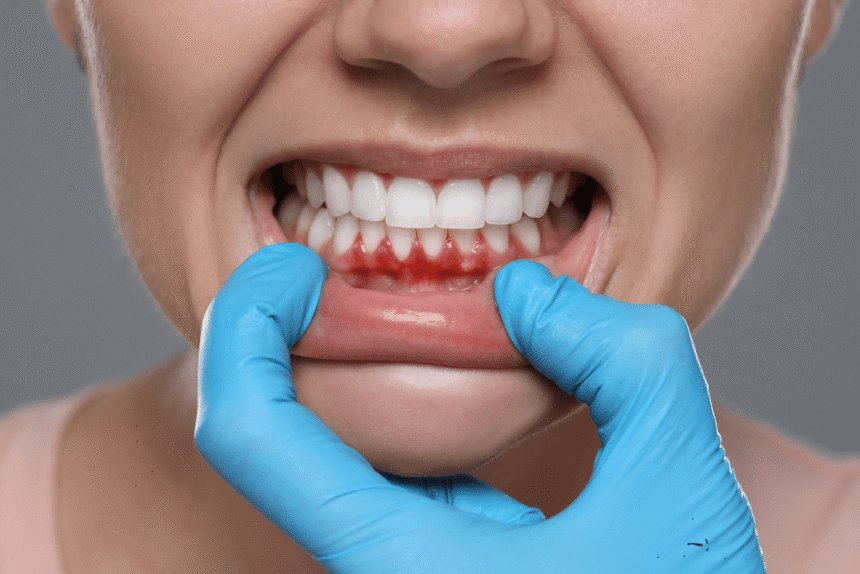Gum disease is a common oral health condition that can affect people of all ages. From the mild inflammation of gingivitis to the more severe periodontitis, gum disease requires timely intervention and consistent care. Professional treatment from a dentist is essential, but equally important is what you do at home to support your gums during and after treatment. Proper home care can reduce inflammation, prevent further damage, and ensure that treatment results last long term.
One natural remedy that has gained attention in recent years is castor oil for gum disease. This nutrient-rich oil contains antibacterial and anti-inflammatory properties that can help soothe irritated gums, reduce swelling, and fight the bacteria that contribute to gum disease. While it should never replace professional dental care, castor oil can be a helpful addition to your home care routine, complementing the treatments prescribed by your dentist.
In this article, we will explore practical and effective home care tips while undergoing gum disease treatment, focusing on oral hygiene, diet, lifestyle habits, and natural remedies that can support healing and long-term gum health.
1. Follow Your Dentist’s Instructions Carefully
Your dentist will provide specific instructions based on the severity of your gum disease and the treatments performed. Following these instructions closely is critical for successful recovery. These guidelines may include how to brush and floss, when to use special mouth rinses, or how to apply prescribed gels or medications.
For example, if your dentist recommends an antibacterial rinse or a medicated gel, using it exactly as instructed can prevent infection and accelerate healing. Skipping or overusing these products may slow recovery or worsen the condition.
2. Maintain Gentle but Effective Oral Hygiene
Even during treatment, consistent oral hygiene is crucial. However, gum disease makes gums more sensitive, so brushing and flossing must be done gently:
- Use a soft-bristled toothbrush: Hard bristles can irritate or damage inflamed gums.
- Brush twice daily: Use small circular motions and avoid aggressive scrubbing.
- Floss carefully: Slide floss gently between teeth rather than snapping it into place.
Electric toothbrushes with pressure sensors can be particularly helpful, ensuring you clean thoroughly without harming your gums. Maintaining proper oral hygiene prevents plaque buildup and supports the healing process after professional treatment.
3. Use Rinses to Reduce Bacteria
Rinsing your mouth can play an important role in managing gum disease. Warm saltwater or an antibacterial mouthwash can help reduce bacteria and inflammation:
- Saltwater rinse: Dissolve half a teaspoon of salt in a cup of warm water, swish gently for 30 seconds, then spit.
- Antibacterial rinses: Use as prescribed by your dentist to target specific bacteria causing gum inflammation.
Rinsing after meals and before bed helps remove food particles and bacteria that brushing and flossing may miss.
4. Support Your Gums with a Healthy Diet
Nutrition has a significant impact on gum health. Eating the right foods can strengthen your gums and support recovery:
- Fruits and vegetables: Rich in vitamins and antioxidants that reduce inflammation.
- Calcium and vitamin D sources: Help strengthen teeth and jawbone.
- Avoid sugary and acidic foods: Reduce plaque buildup and prevent irritation.
- Stay hydrated: Adequate saliva helps protect gums naturally.
A balanced diet not only supports healing but also helps prevent future gum problems.
5. Avoid Tobacco and Excess Alcohol
Smoking and heavy alcohol consumption can interfere with gum healing and worsen gum disease. Nicotine decreases blood flow to the gums, slowing the recovery process, while alcohol can irritate gum tissue and promote bacterial growth. Quitting smoking and limiting alcohol intake during treatment can significantly enhance results and improve overall oral health.
6. Incorporate Natural Remedies Like Castor Oil
As mentioned earlier, castor oil for gum disease can be a helpful complementary remedy. Ricinoleic acid, the main component in castor oil, has antibacterial and anti-inflammatory properties that may help reduce gum swelling and control bacterial growth. To use it:
- Apply a small amount of castor oil to your fingertips.
- Gently massage it onto your gums once or twice daily.
- Avoid swallowing large amounts; it is meant for topical use only.
Remember, castor oil should never replace prescribed treatments but can support healing as part of a comprehensive home care routine.
7. Attend Regular Follow-Ups
Even with excellent home care, regular dental checkups are crucial. Your dentist can monitor your gum health, adjust treatments, and remove plaque or tartar that is difficult to reach at home. Consistent follow-ups ensure your gums are healing correctly and reduce the risk of relapse.
Final Thoughts
Home care plays a critical role in the success of gum disease treatment. Gentle brushing, careful flossing, antibacterial rinses, a nutrient-rich diet, avoidance of tobacco and alcohol, and the use of supportive remedies like castor oil for gum disease can all help your gums recover faster and stay healthy. Combined with professional dental care, these practices give you the best chance of controlling gum disease and protecting your smile for life.
Consistent oral hygiene and a proactive approach to dental care ensure that your gums remain strong, your teeth remain secure, and your overall oral health improves, long after treatment is completed.













